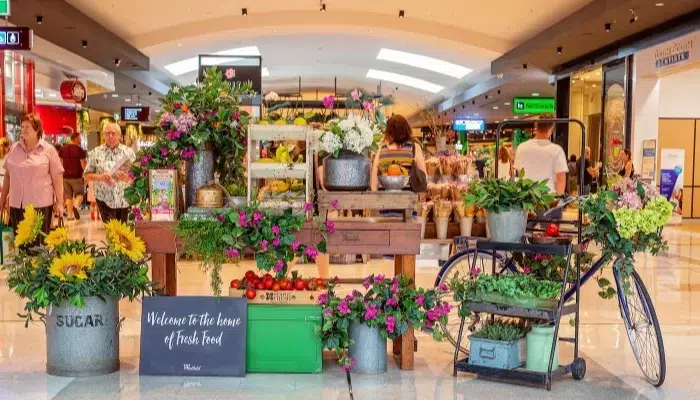Business
Are Pop-Up Shops the Answer to Revitalizing Retail? Here’s What You Need to Know

- Pop-up shops are temporary retail venues that provide one-of-a-kind shopping experiences by displaying exclusive merchandise and hosting immersive activities.
- They assist merchants by offering low-risk opportunities to test new concepts and gain vital customer information, all while instilling enthusiasm and urgency.
- These stores contribute to urban revitalisation and community participation by providing a more personalised alternative to traditional retail formats.
In the fast-changing retail world, where traditional brick-and-mortar stores are facing rising competition from e-commerce behemoths, a new trend has developed that is transforming how customers connect with brands: pop-up shops. These temporary retail facilities provide a distinct and exciting shopping experience, attracting the attention of both consumers and businesses. This article will look at the notion of pop-up shops, their benefits, and how they are influencing the future of retail.
Understanding Pop-up Shops
Pop-up shops are ephemeral retail businesses that last only a few days or months. They can be seen in a variety of venues, including abandoned shopfronts, malls, and even unusual places like warehouses, art galleries, and shipping containers. These stores frequently feature exclusive product offerings, limited-time specials, and immersive experiences aimed at generating excitement and attracting customers.
Benefits for Retailers and Customers
Pop-up shops provide several benefits to both retailers and consumers. For retailers, they provide a low-risk opportunity to test new products, markets, or concepts without the long-term commitment of a permanent store. Pop-up stores also enable brands to generate a sense of exclusivity and urgency, resulting in increased sales and brand exposure. These temporary shopfronts also create significant customer data and insights, which may be used to guide future business plans.
Pop-up stores offer a unique and interesting shopping experience for customers. They provide an opportunity to explore new companies, products, and trends, with a concentration on limited-edition items rarely seen in typical retailers. These stores frequently hold events, workshops, and other activities that promote community participation and social interaction, resulting in a one-of-a-kind experience that extends beyond basic transactions.
Impact on the Retail Industry
Pop-up shops have had a tremendous impact on the retail business. They challenge established retail models by offering a more personalised, engaging, and experiential shopping experience. This is particularly crucial in today’s digital age when consumers are increasingly looking for ways to engage with brands on a deeper, more personal level.
Pop-up stores have also helped to revitalise cities by breathing new life into empty shopfronts and transforming them into exciting shopping hotspots. They help local economies by providing a platform for small enterprises to grow and create jobs, as well as encouraging creativity and community. These shops frequently act as showcases for local artists, designers, and entrepreneurs, combining commerce and culture.
The Future of Pop-up Shops
As the retail business evolves, pop-up stores are expected to play an ever larger role. Retailers are expanding their usage of pop-up venues, experimenting with new formats, locations, and experiences. Some are mixing pop-up concepts with online platforms to create hybrid shopping experiences that blend physical and digital retail.
Pop-up stores are becoming increasingly popular as a result of the growing trend in experiential retail. Customers are increasingly drawn to businesses that provide unique and memorable experiences, and pop-up shops are well-positioned to match this need by creating immersive spaces that engage the senses while telling a brand’s narrative. This, in turn, increases client loyalty and encourages repeat purchases.

















































